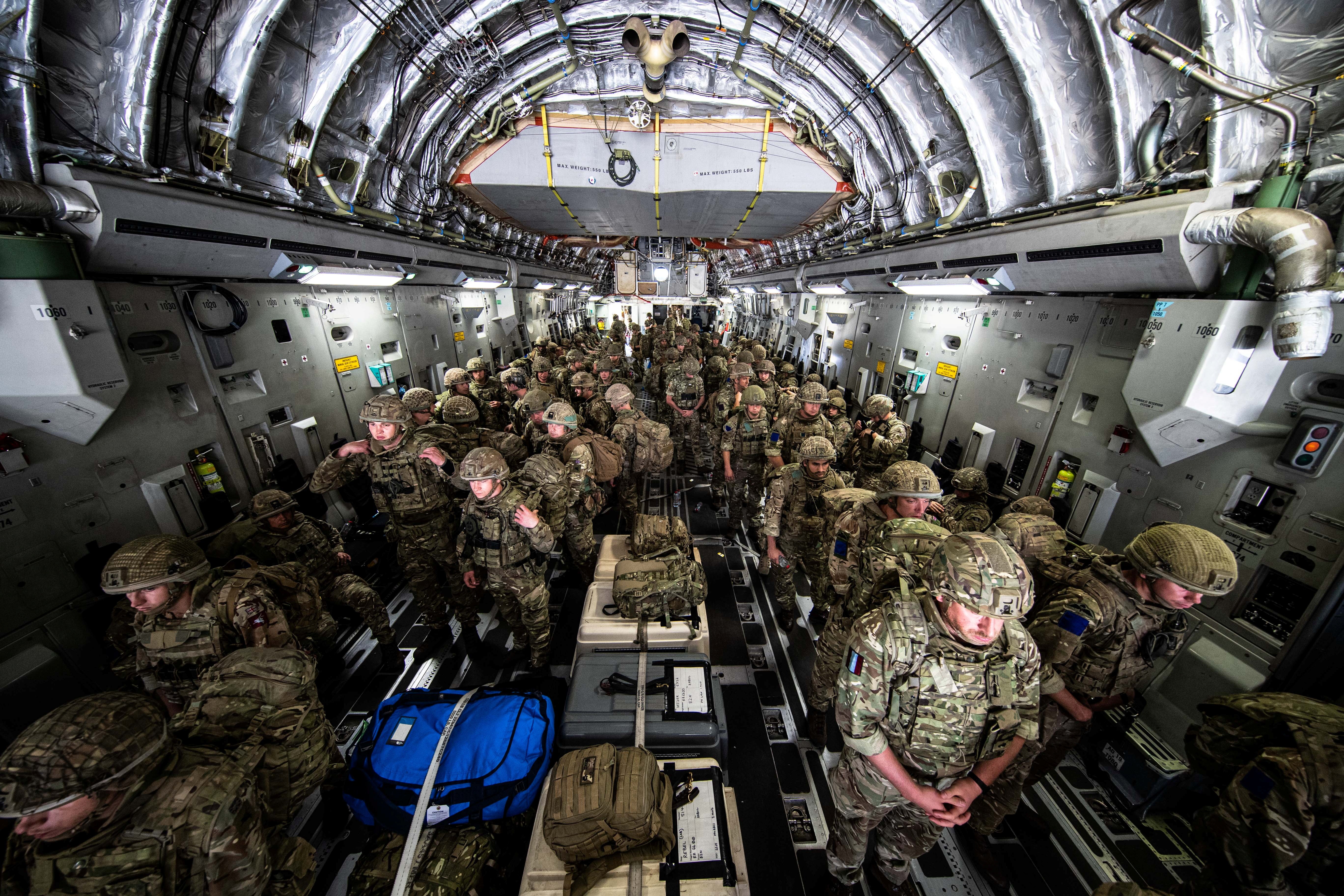Inside Politics: More UK troops sent to Kabul and refugee settlement scheme announced
Further 200 soldiers sent to aid evacuation effort as ‘bespoke’ resettlement scheme details to be revealed, writes Matt Mathers


One of the major questions remaining – and one which security experts and commentators alike are seemingly still unable to answer – is what kind of Taliban regime the Afghan people now face. Will it be the brutal force that ruled through fear until it was ousted from power in 2001, or are we likely to see a reformed group, which treats women with respect and allows them to have an education, as its leaders are claiming? The group holds a press conference later to address some of those questions. But only time will tell if it has really changed, and the true answers likely to come long after the cameras have left Kabul.
Inside the bubble
Our chief political commentator John Rentoul on what to look out for today:
Today is hydrogen day in the government media grid: Kwasi Kwarteng, the business secretary, will publish a document trying to make sense of Boris Johnson’s enthusiasm for hydrogen technology as a way to decarbonise energy-intensive industries on the way to net zero. Burning hydrogen produces no carbon dioxide, but it takes vast amounts of (renewable) electricity to produce it in the first place.
At 4pm today, John will host an “ask me anything” session as parliament is recalled to debate the developing crisis in Afghanistan. You can join the discussion via this link.
Coming up shortly:
-Foreign secretary Dominic Raab on BBC Radio 4 Today at 8.10am
-Shadow Asia and Pacific minister Stephen Kinnock on Times Radio Breakfast at 8.30am
Daily Briefing
KABUL CHAOS: The Taliban’s takeover of Kabul continues to dominate the news agenda today, with most outlets splashing on the horrific images of Afghans clinging to a US Air Force plane in a desperate bid to escape the new regime. At least seven people are dead, some of whom reportedly perished while trying to board a civilian plane. The chaos forced the closure of Kabul airport as US troops attempted to regain control. Flights evacuating diplomats and civilians have just begun again this morning, with reports suggesting things are now much calmer.
STANDING FIRM: Sunday’s events sparked major debates on both sides of the Atlantic about the role of the West in Afghanistan. In a passionate and robust defence of his decision to pull troops out, US President Joe Biden said he stood “squarely” behind the move, which was negotiated by his predecessor, Donald Trump, although followed through by Biden himself. “How many more American lives is it worth?” he asked in an address to the nation. Biden and Jake Sullivan, his national security adviser, both suggested that the speed at which the militants regained control of the country was because the Afghan army, trained and funded by the US, lacked the “will” to defend themselves. Biden, who insists US involvement in Afghanistan has been a success, has come under fire for failing to foresee how quickly the situation could deteriorate and has been accused by critics of an “America first” approach to foreign policy.
BORIS BACKLASH: Meanwhile back at home, Boris Johnson, Dominic Raab, the foreign secretary and Priti Patel, the home secretary, have all faced a backlash for their handling of the crisis. Many Tory MPs spoke powerfully about the UK’s responsibility to support Afghans amid the chaos. And in an ominous warning, one leading Tory MP has predicted a “major” terrorist attack on the West following the fall of Afghanistan to the Taliban. “Really sadly, I predict another major hit on the West, the likes of 9/11,” Tobias Ellwood, chair of the defence select committee, said. “Because the terrorist groups will want to bookend our time in Afghanistan to show how futile the last two decades have been.”
MORAL DUTY: Under increasing pressure, Downing Street has today announced that the PM will unveil a “bespoke” resettlement scheme for vulnerable Afghans as efforts to get British nationals and other support staff back to the UK continue, although there is currently no target for how many people can come. No 10 said Johnson would give more information about the refugee scheme in the coming days, with the policy anticipated to be focused on helping women and girls. The PM has also called for a meeting of G7 leaders to discuss the crisis. In other developments, British armed forces numbers are to be bolstered to 900, with a further 200 announced by the Ministry of Defence on Monday.
GREEN ENERGY BOOST: The UK government is to spend just over £100m to “kickstart a world-leading hydrogen economy”, which it hopes will help the fuel become a major energy source and play a significant role in decarbonising heavy industry. Hydrogen has long been tipped as a clean green fuel that might be used to replace fossil fuels in combustion-based sectors that are more difficult to electrify, such as aviation, shipping, steel and chemical production and other heavy industry. In a statement, the government said that “a booming, UK-wide hydrogen economy could be worth £900m and create over 9,000 high-quality jobs by 2030, potentially rising to 100,000 jobs and worth up to £13bn by 2050”.
On the record
“Some people won’t get back. Some people won’t get back. And we will have to do our best as third countries to process those people.”
Defence secretary Ben Wallace on the situation in Afghanistan.
From the Twitterati
“I covered Kabul under the Taliban. I covered their retreat in 2001 and saw the relief that swept the nation. I covered the country’s first general election. I’m stunned that all that hope and optimism ended like this.”
BBC’s North America bureau chief Paul Danahar on scenes at Kabul airport.
Essential reading
- Faiza Saquib, The Independent: Afghans everywhere feel helpless in this crisis
- Stephen Lyons, The Independent: American troops were played for fools over Afghanistan
- Katherine Denkinson, The Independent: ‘Incel’ forums must be tackled like other kinds of terrorist activity
- Gordon Brown, The Guardian: The world is making billions of Covid vaccine doses, so why is Africa not getting them?
Join our commenting forum
Join thought-provoking conversations, follow other Independent readers and see their replies
Comments